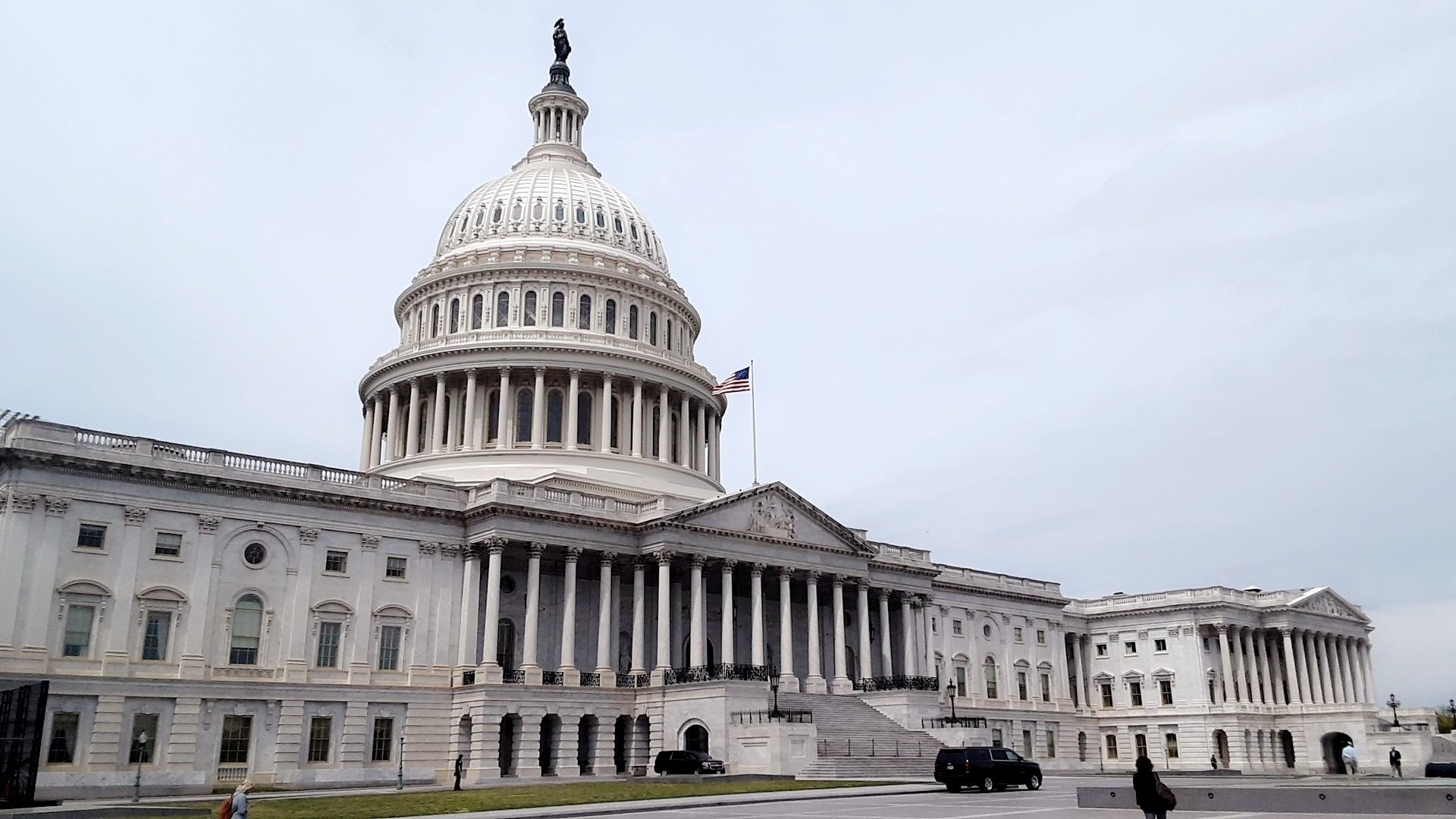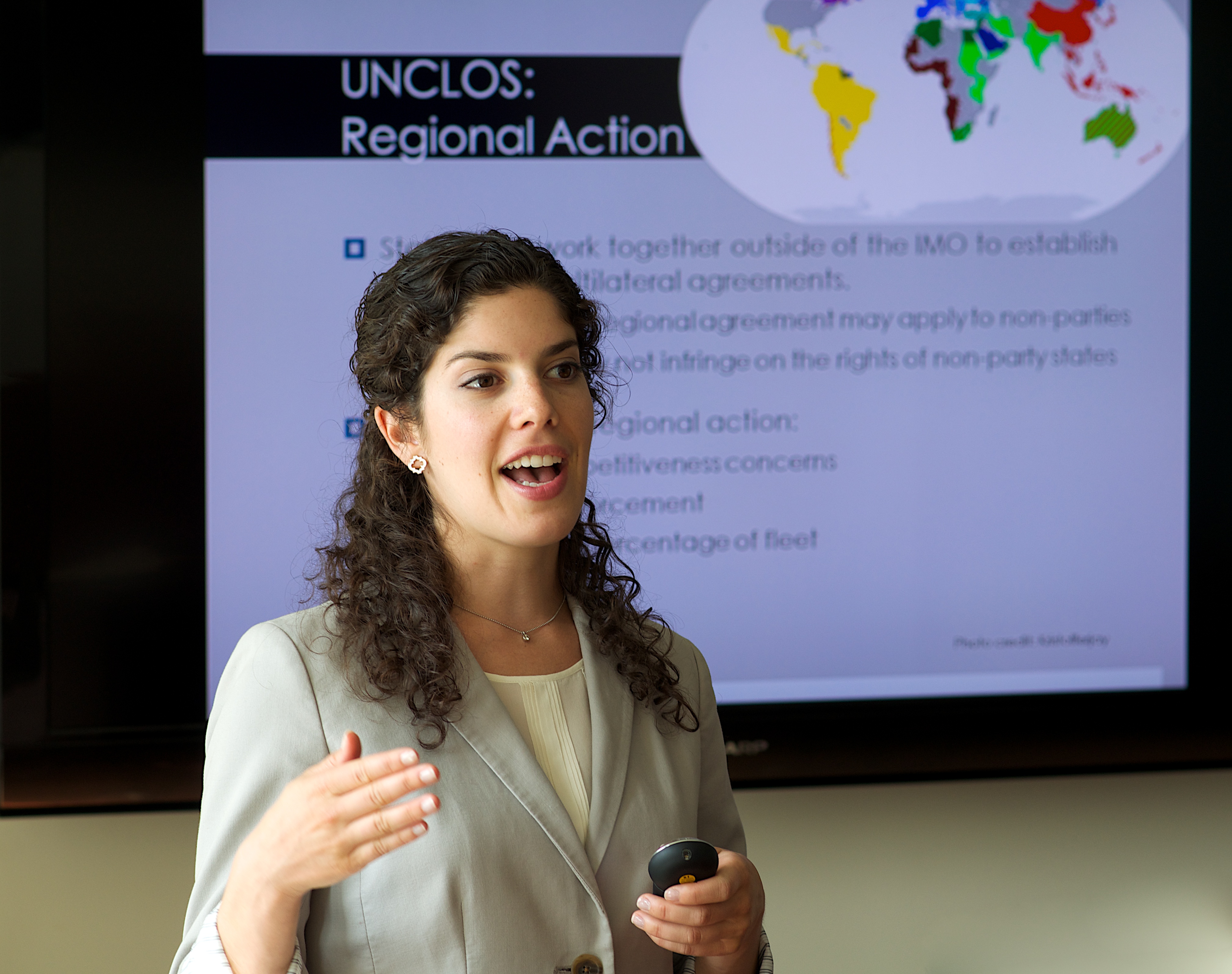The Threatened Island Nations commenced this morning co-chaired by Professor Michael Gerrard (Director of the Columbia Center for Climate Change Law) and Ambassador Phillip Muller (Republic of the Marshall Islands). Gerrard provided a brief introduction about the inspiration for the conference and thanked the Earth Institute at Columbia University, World Bank, Government of Australia, Government of South Korea, and Government of Israel for their support. Gerrard went on to highlight the importance of the conference asking rhetorically: What becomes of the sovereignty of a submerged nation? What rights do the displaced people have? What becomes of the nation’s fishing rights and exclusive economic zones? The objective of the conference is to tackle these difficult questions.
The Honorable John Silk, foreign minister of the Marshall Islands, then took the podium and emphatically stated that the long-term risks of climate change are something which the Marshall Islands can no longer ignore. He urged that a strong and scientifically agreed upon agreement is necessary for the future. He then explained that millimeters of sea level rise are beginning to turn into centimeters and the populace can now see the tangible impacts. Silk questioned the audience, what happens to the children and the grandchildren of the threatened islands? He closed his speech asking the audience to be cognizant of the magnitude of the crisis island nations face and strive to provide answers.
Mary-Elena Carr, scientist at the Earth Institute, closed the first morning session explaining the sources of sea level rise and the bleak outlook worldwide. She provided the projection that by 2100, global sea level could rise from 60-180 cm from 1990 levels, largely dependent on the action taken by countries to curb emissions. She went on to explain the impacts of sea level rise on weather patterns, farming, and fishing. During the Q&A session, Ambassador Muller implored Carr to explicitly state which countries are to blame for the rising sea levels. Carr cautiously answered that developed countries are certainly the most culpable but worldwide action must be taken to curb emissions.
Update 12:38 PM:
The second session of today’s conference was themed “Statehood and Statelessness”. Jenny Grote Stoutenburg, a scholar from the University of California Berkeley Law School, began by outlining the four accepted thresholds in international law for effective statehood: defined territory, permanent population, government, and independence (collectively, the “principles of effectiveness”). Grote Stoutenburg elaborated on how threatened island nations can preserve their legal personality taking these thresholds into consideration. She stressed, however, that in practice, UN membership is important to maintain international legal agency. A 2/3 majority in the General Assembly would be required to formally expel a state from the UN. Grote Stoutenburg expressed doubt that such action would occur, providing optimism for the continued recognition of submerged island nations. Grote Stoutenburg then suggested that even in the absence of support from these “principles of effectiveness,” threatened nations could draw upon jus cogens norms to justify the international legal duty to continue to recognize the legal personality of submerged nations. She finished her presentation with policy recommendations for threatened islands, advocating for threatened island nations to ensure that a “population nucleus” stays on some part of the island territory, even if this territory is artificially reinforced, or to at least ensure that some “caretakers” remain on some residual territory. Pointing out the diplomatic difficulties associated with derecognition, she also urged the governments of these nations to continue to claim continued existence in all available international forums.
Professor Maxine Burkett of the University of Hawaii Law School built upon Stoutenberg’s presentation advocating for ex-situ nationhood for threatened islands. She argued that the extraordinary circumstances of threatened nations alone justify unique departures from international norms. She went on to lay the specifics of a member-driven trusteeship model that could be pursued by threatened island nations to retain their sovereignty.
Ambassador Muller took a turn from the academic nature of the discussion, bringing the politics of the situation back to the fore. He expressed grave disappointment that the international community has not found the necessary political will to deliver the ambitious response required to the crisis. He poignantly stated that “for us [Marshallese], land is our identity, not an interchangeable commodity.” Drawing upon the foundations of the United Nations, he emphasized the importance of the equality of nations, asking that as we contemplate the future that challenges statehood, there should be no burden or pressure by the international structure placed upon those nations that are not directly to blame. Ambassador Muller then called upon Ambassador Antonio Lima from Cape Verde. Ambassador Lima gave an impassioned speech on the need for solidarity within the international community. He argued that what is happening to small island nations today will happen to everyone tomorrow making it incumbent upon all nations to be involved in responding to the crisis.
Update 2:25 PM:
Professor Alfred Soons of Utrecht University gave the introduction to the third session of today titled, “Preserving Marine Rights: Fishing and Minerals.” Professor David Freestone of George Washington University Law School began the discussion focusing on the importance of baselines in maritime jurisdiction zones. Freestone highlighted the losses of maritime jurisdiction that would be incurred as a result rising sea levels and coastal erosion and, referring to certain questionable past state practices, proclaimed that at least part of threatened island nations’ strategy may be to rely on the flexibility of state practice and customary law
Professor Ann Powers of Pace Law School then discussed the implications of changing maritime boundaries, specifically referring to impacts on tourism and fishing industries in Tuvalu, Seychelles, Maldives, and Bangladesh.
Professor Rosemary Rayfuse of the University of New South Wales further delved into the topic of maritime zones tackling the question of how submerged island nations can retain maritime or exclusive economic zones. She analyzed the option of freezing baselines meaning that nations will neither gain nor lose any maritime jurisdiction with receding coasts. The complications as she described would be if new islands were born through volcanic eruption or if an uninhabitable suddenly became habitable. She also admonished that preexisting disputes over baselines would still be an issue but would not cripple the proposed system. To put her proposed plan into action, Rayfuse promoted three possible courses of action: developing customary international law, adding a protocol to the UNFCCC, or modifying the Law of the Sea Convention through a formal amendment or agreement. However, acknowledging the difficulty of these options she urged island nations at least to redefine their maritime zones in domestic legislation, pointing out that even by their own domestic definitions, these nations may stand to lose significant swaths of territory.
Update 9:33 PM:
The fourth session today discussed “Legal Remedies.” Jacob Werksman of the World Resources Institute opened the discussion charting the history of legal remedies pursued thus far in regards to curbing greenhouse gas emissions. Drawing upon international customary and treaty law, Werksman focused on the legal actions that can be taken to obligate countries such as the United States to do their due diligence in reducing emissions.
Donna Green, from the University of New South Wales, continued the discussion focusing on the legal recourse for non-state islands. Concentrating on the Torres Strait, which contains many small islands belonging to Australia, Green discussed the importance of not just assessing the physical or monetary impact of rising sea levels but also being aware of the cultural and social impacts. Green advocated for small islands to take advantage of laws that protect indigenous culture. After describing in detail the relevant Australian laws (although she noted that no tort cases had been commenced over climate change impacts as of yet), Green then gave a brief summary of other possibly relevant statutes for other nations.
Dean Bialek, at Independent Diplomat, talked about ocean acidification and its unique impacts but most importantly noted that ocean acidification is easier to litigate against than climate change because of the ease in proving a causal link between the action and the impact. Bialek proclaimed that the current trajectory of emissions would cause coral reefs to begin to dissolve by 2100. He added that even with the current international talks on keeping a 2 degree cap on temperature rise, atmospheric greenhouse gas concentrations would be well above 450 ppm in 2100 at which point coral reefs would cease to grow. He drew upon these statistics to point out the importance of increasing the rigor with which legal proceedings are undertaken. Bialek recommended the following international forums through which action could be pursued: the UNFCC, Convention on Biological Diversity, and UNCLOS. Bialek primarily recommended UNCLOS on the grounds that it has clear treaty obligations and a much less ambiguous process for proving the scientific link between actions and impacts.
Antonio Oposa of the University of the Philippines proceeded to change the tone of the conversation focusing his presentation on anecdotes and stories to paint the legal picture for responding to climate change. The three issues that Oposa highlighted in moving forward were political will, willing lawyers, and logistical support. Oposa stressed that terms of the debate needed to be reframed to make environmental security the highest form of national and international security.
Stuart Beck, ambassador of Palau, wrapped up the conversation discussing the current litigation methods that can be utilized. He first recalled how he along with many small island state ambassadors had brought the issue of climate change to the United Nations years ago. He proclaimed that even litigation that is not successful would go a long way in bringing the current issues to the forefront to influence some kind of change.




